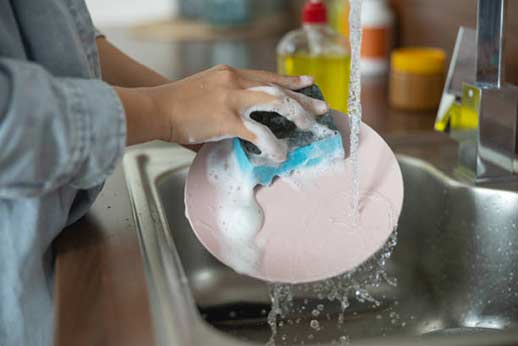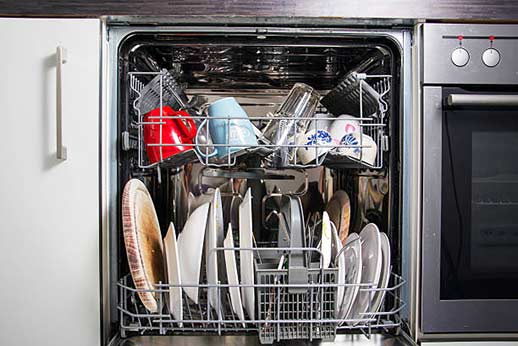Welcome to our article on why dishwashers keep clogging. If you’ve ever experienced the frustration of a clogged dishwasher, you’re not alone. Many homeowners face this issue, and it can be a major inconvenience. In this article, we will explore the possible reasons behind dishwasher clogs and provide some helpful tips to prevent them. Whether you are a professional in the plumbing industry or a homeowner looking for solutions, we’ve got you covered.
Common Causes of Dishwasher Clogs
Dishwasher clogs can occur due to several factors. Understanding these causes can help you troubleshoot and prevent future clogs. Here are some common reasons why dishwashers keep clogging:
1. Food Debris
One of the primary causes of dishwasher clogs is food debris. It is crucial to scrape off excess food from dishes before placing them in the dishwasher. Small food particles can easily accumulate in the drain or filters, leading to clogs. Regularly cleaning and rinsing the filters can help prevent this issue.
2. Mineral Buildup
Mineral buildup can occur in regions with hard water. Over time, minerals such as calcium and magnesium can accumulate in the dishwasher’s interior, causing clogs. Installing a water softener or using dishwasher cleaners designed to remove mineral deposits can help prevent this problem.
3. Grease and Fat
Grease and fat from dishes and utensils can solidify and clog the dishwasher’s drain. It is essential to remove any excess grease by wiping dishes before loading them into the dishwasher. Regularly cleaning the dishwasher’s drain and using hot water cycles can also help prevent grease-related clogs.
4. Soap and Detergent Residue
Soap and detergent residue can accumulate in the dishwasher’s components over time, leading to clogs. Using excessive amounts of detergent or not using the appropriate type for your dishwasher can contribute to this issue. Following the manufacturer’s guidelines and periodically cleaning the dishwasher can help prevent soap and detergent buildup.
5. Broken or Misaligned Parts
A malfunctioning or misaligned part can disrupt the proper flow of water and result in clogs. Common problematic parts include the spray arm, pump, drain hose, or check valve. Regularly inspecting and maintaining these components can help identify any issues before they cause a major clog.

Take a moment to scrape off excess food from your dishes and rinse them before loading them into the dishwasher.
Tips to Prevent Dishwasher Clogs
Now that we have discussed the common causes of dishwasher clogs let’s explore some preventive measures to keep your dishwasher running smoothly:
1. Pre-Rinse Dishes
Take a moment to scrape off excess food from your dishes and rinse them before loading them into the dishwasher. This simple habit can significantly reduce the risk of clogs caused by food debris.
2. Use the Right Detergent
Ensure that you are using the appropriate dishwasher detergent for your machine. Different dishwashers require specific types of detergents, so be sure to consult your dishwasher’s user manual. Using the right detergent will help prevent excessive soap residue buildup.
3. Regularly Clean the Filters and Drain
Check your dishwasher’s filters regularly and clean them as needed. Built-up debris in the filters can obstruct water flow and lead to clogs. Additionally, cleaning the drain periodically will help prevent any blockages.
4. Maintain the Spray Arm
Inspect the spray arm for any blockages, such as food particles. Remove any obstructions and ensure that the spray arm’s nozzles are clean and functioning properly. This will help ensure that water is distributed evenly during the cleaning cycle.
5. Avoid Overloading the Dishwasher
While it may be tempting to load as many dishes as possible, overloading the dishwasher can impede water flow and increase the chances of clogs. Allow enough space between dishes for water and detergent to circulate freely.
6. Use Hot Water Cycles
Periodically running a hot water cycle in your dishwasher can help dissolve any grease or soap residue that may have accumulated. This simple step can prevent clogs and keep your dishwasher performing optimally.
7. Consider Water Softeners
If you live in an area with hard water, consider installing a water softener system. Water softeners remove minerals that can cause buildup in your dishwasher and other appliances. This will not only prevent clogs but also extend the lifespan of your dishwasher.
Summing it Up
In conclusion, dishwasher clogs can occur due to various factors such as food debris, mineral buildup, grease and fat, soap residue, and broken or misaligned parts. By understanding these causes and implementing preventive measures like pre-rinsing dishes, using the right detergent, regularly cleaning filters and drains, maintaining the spray arm, avoiding overloading, using hot water cycles, and considering water softeners, you can minimize the likelihood of clogs and keep your dishwasher running smoothly.
Remember, regular maintenance and proper usage are key to preventing clogs and ensuring the longevity of your dishwasher. By following the tips outlined in this article, you can enjoy clean and hassle-free dishwashing for years to come.
